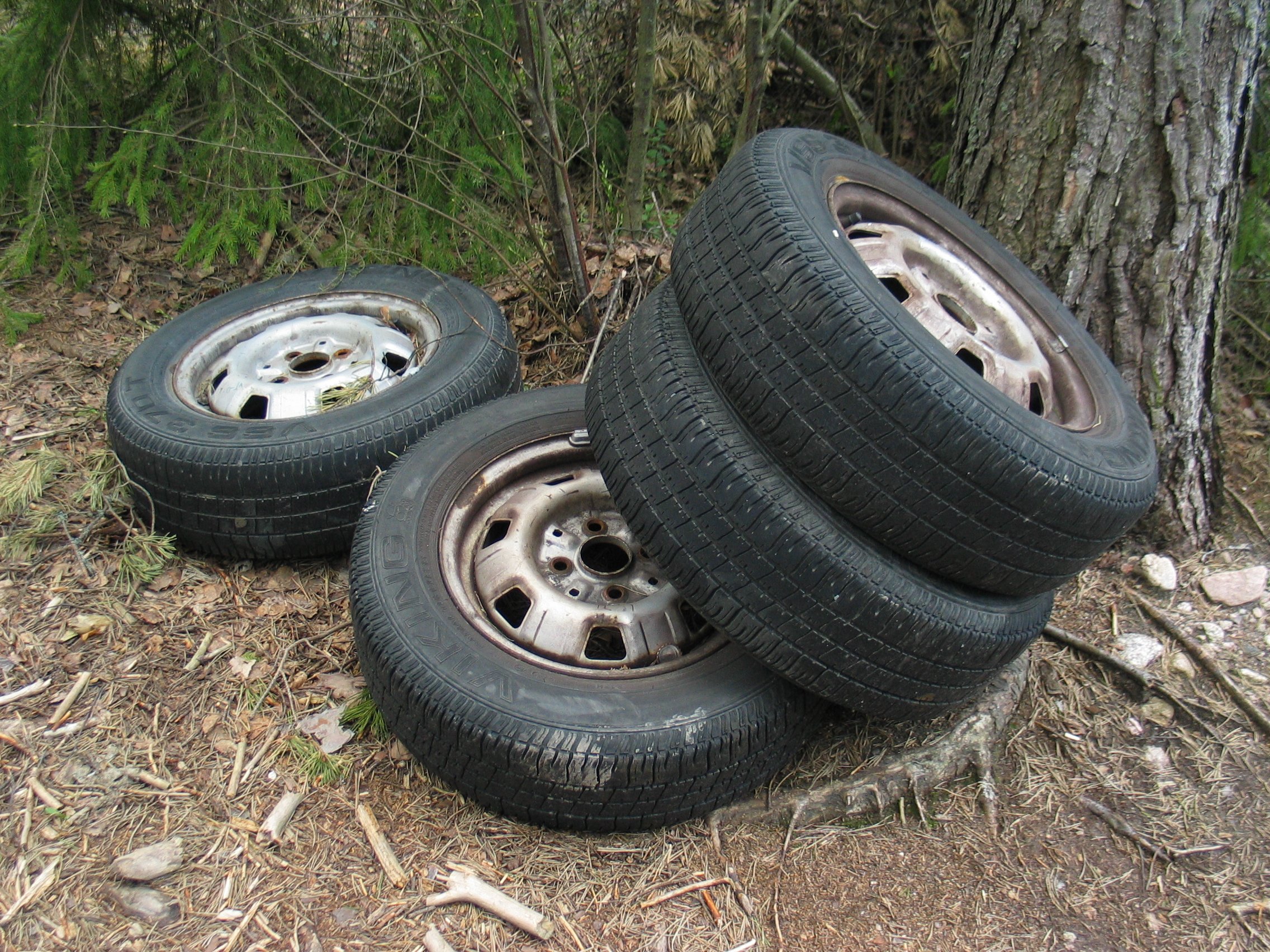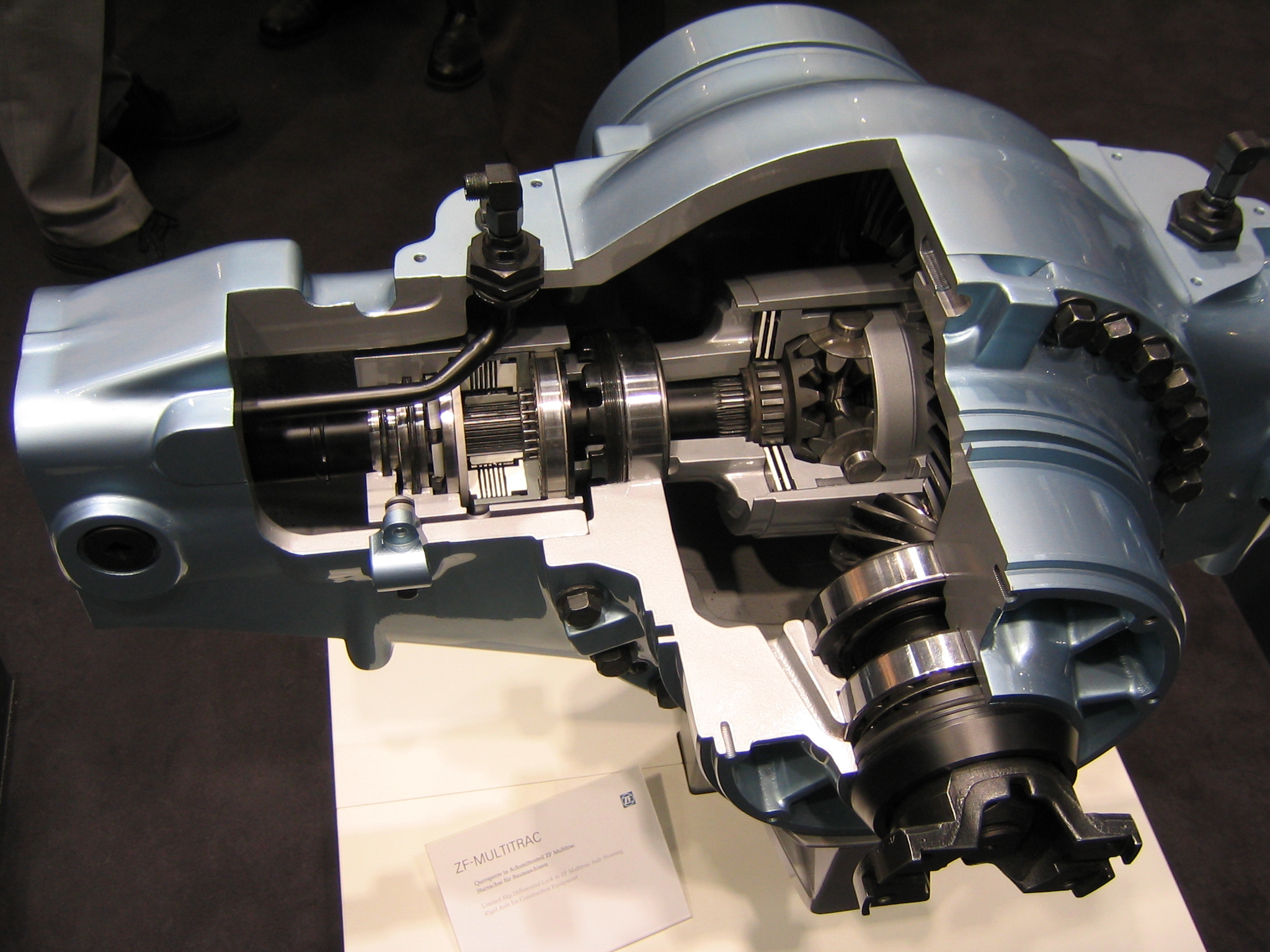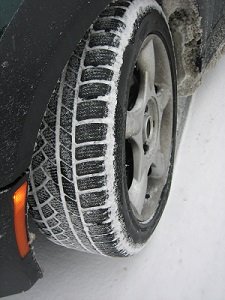Posted on 2/25/2016

In a perfect world, all four tires would wear out at the same time. In the same perfect world, everyone would be able to afford a whole set of tires all at once. Unfortunately, things often just do not work out that way. Sometimes you may just have to replace tires as you can afford them, one or two at a time, but there are some important things to bear in mind if you have to do that. If you can only afford to replace one or two tires, it’s essential that you go with tires that are identical (or at least as close as possible) to the car’s remaining tires. That means that internal construction, size, tread pattern and design should be close to the same. Don’t mix winter tires with all-season tires, don’t mix run-flat tires with standard tires, for instance. But why? Tires are all designed for different handling properties and traction, and are intended to work together as a set. Mixing sizes, tread patterns and designs can mean a car that has unpred ... read more
Posted on 2/11/2016

Differential Service – Why Is It Important? Of all the various things on a vehicle that need regular service and maintenance, the differential is too often neglected. But what exactly is it, and what does it do? Visualize a rear-wheel-drive vehicle making a right-hand turn. As the car turns to the right, the left rear wheel will have to actually cover a longer distance and spin at a different speed than the right wheel. If the rear axle was delivering the same torque to both wheels, the left rear wheel would be binding and skittering as it made the turn. The differential is designed to allow the wheels to turn at different speeds around corners, eliminating that problem. The differential uses an oil thicker than motor oil, somewhere between an oil and a grease in terms of its weight. Like any other assembly, though, the oil in the differential will become contaminated over time and will start to break down due to heat. Most differentials need a fluid change at abou ... read more
Posted on 1/28/2016

Your tires are a pretty big investment. Even with the cheapest set of tires, you’re going to be spending upwards of $400 on the tires, mounting, balancing, disposal fees and taxes. Since you laid down that kind of money, doesn’t it just make sense to make sure you get the most miles possible out of them? Here’s some advice on long tire life:• Regularly check your tire pressure. This one is really, really important. Underinflated tires will wear unevenly and reduce your fuel economy due to increased rolling resistance. That increased rolling resistance also means more heat, which will break down the tires’ internal structure and shorten their lives. All it takes to shorten a tire’s service life by 25 percent is for it to be underinflated by 5-6 lbs. • Rotate your tires regularly. No vehicle has even weight distribution from front to rear. The engine puts more weight over the front wheels; in addition, the front tires will wear d ... read more
Posted on 1/14/2016

Some people love winter. They love the snow, the snap in the air, the short days and cozy nights at home. Others can’t stand it, for many of the same reasons. Regardless of whether you love it or hate it, though, chances are you’re going to have to get out and drive in it at some point. We’ve got a few suggestions to help you through the winter safely: • Make sure you’ve got a well-maintained car. This includes fresh windshield wipers, proper tire inflation, a strong battery, a properly-maintained cooling system and a fresh oil change. If your tires aren’t up to the job of winter driving, you might consider switching to winter tires for a while – just remember to switch back when temperatures get above 40 degrees. The softer tread compound of winter tires will wear quickly in warmer temperatures. • Make sure your car is thoroughly de-iced before you go anywhere. Hot water might seem tempting because it’s quicker ... read more
Posted on 12/31/2015

In a lot of parts of the country, the winters are tough enough that all-season tires just won’t get the job done. All-season tires are a compromise; they offer good year-round traction with a quiet ride, good handling and road manners. They tend to perform well in wet weather and light wintry conditions, but when the snow is more than a couple of inches deep, all-season tires are out of their league. That’s when it’s time to consider winter tires. Today’s winter tires are a long way from the heavy, noisy, clumsy “snow tires” or “mud grips” that your dad might have had on his station wagon 40 years ago. Modern winter tires are designed for noise, handling, steering response and road manners that rival grand touring tires, only with enhanced traction. They accomplish that with deeper, more aggressive tread grooves and a tread pattern that’s designed to eject snow and slush for a clean “bite” with every revolut ... read more